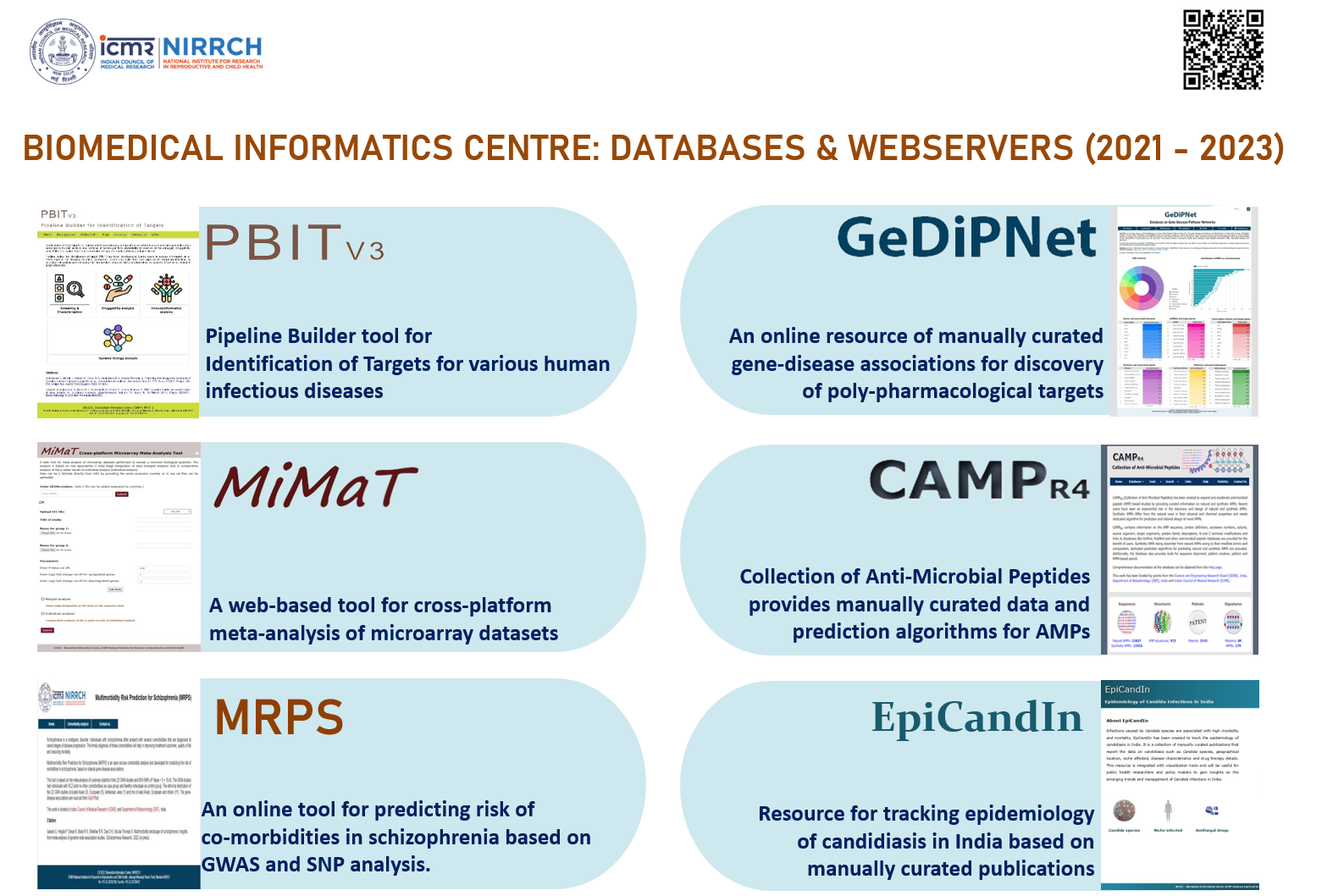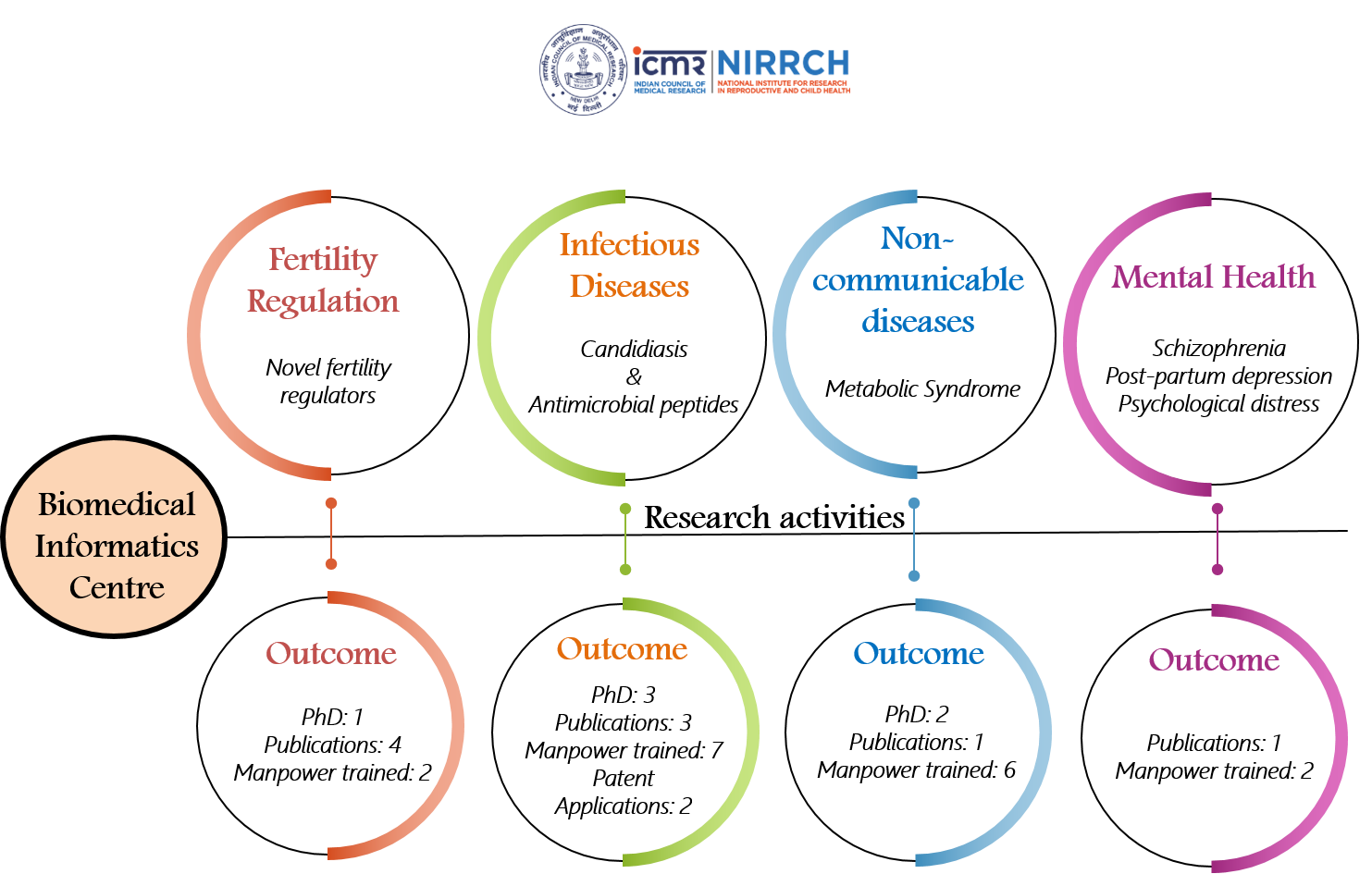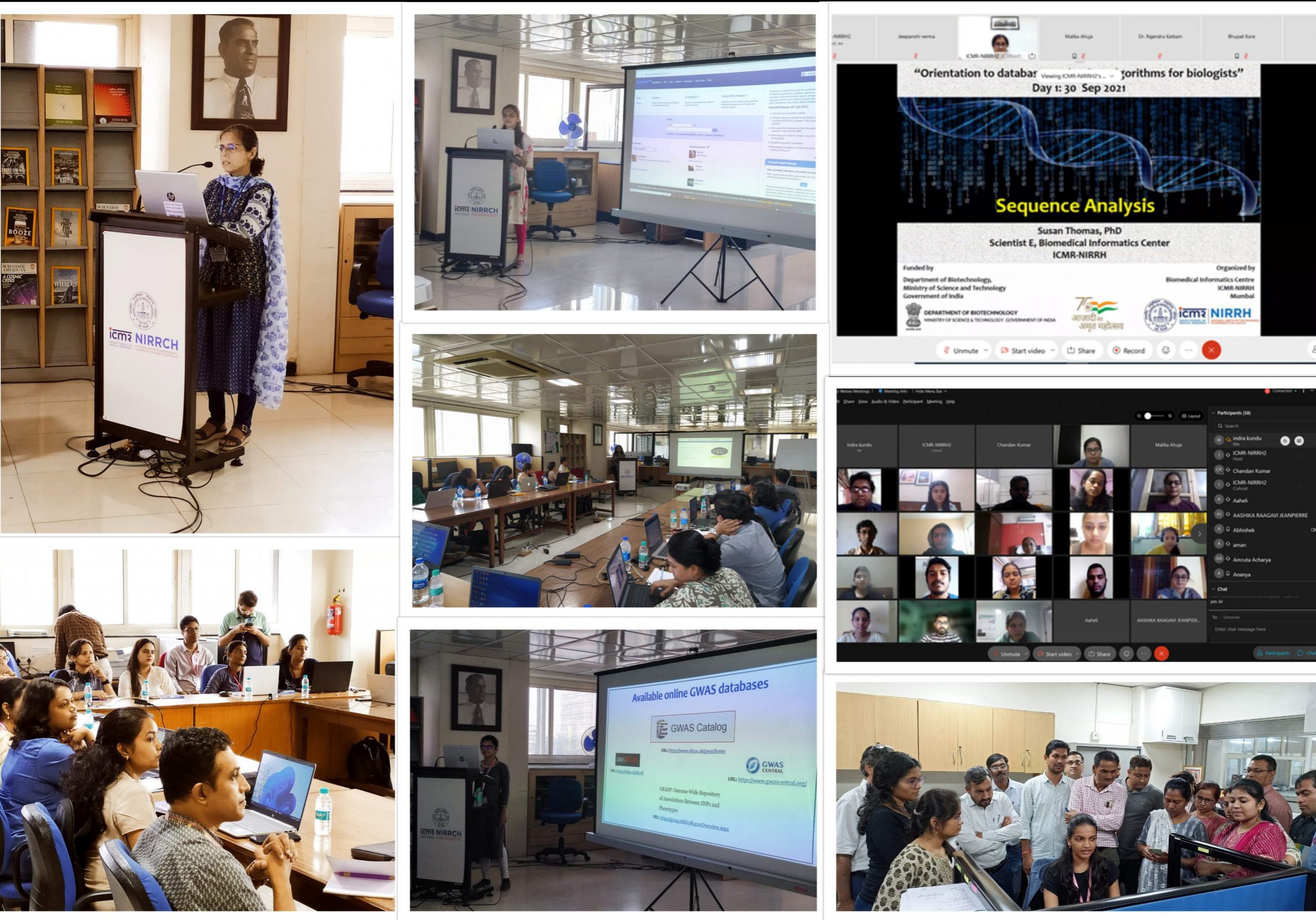ICMR-NIRRCH Mumbai
Disease Informatics for Women and Child Health: Pioneering Research through Bioinformatics and Computational Biology
The primary focus of the center revolves around Disease Informatics and Human Health Studies. The center specializes in the development of high-quality, manually curated disease-centric databases and web applications for high-throughput data analysis relevant to clinicians and reproductive biologists. It collaborates with tertiary care hospitals for the development of disease-specific data repositories providing support for in silico analysis to partner institutes and researchers.
The center’s goal is to collaborate with clinical experts in women and child health to streamline electronic clinical data capture and analysis. This partnership aims to initiate research on diseases like PCOS, Endometriosis, Cardiovascular diseases, HIV, Metabolic Syndrome, and childhood TB. The other objectives involve developing high-quality disease- specific online databases and customized algorithms for effective data mining. The developed resources will be made accessible to internal as well as external clinical and research experts, for efficient resource utilization and to enhance interdisciplinary collaborations in health informatics. It also strives to engage in educational outreach by conducting lectures and hands-on workshops on computational biology and bioinformatics for academicians, clinicians, and researchers.


Among the successful research initiatives, the center has developed a web server to trackthe epidemiology of candida infections reported in India since 1972. It has also identified two novel peptidomimetics and an FDA-approved repurposed drug that can retard Candida growth and lower the dose of fluconazole for combating Candida infection. Patent applications have been filed for the newly identified molecules. The center has contributed to novel therapeutic strategies for SARS-COV2, candidiasis, influenza A virus infection, and a potential alternative to steroid-based contraceptives. They have also developed online knowledgebases (GeDiPNet, CAMP, EpiCandIn), prediction servers (MRPS, PBIT, MiMaT), and the first-of-its-kind tool for predicting polypharmacological targets, thereby catering to the research fraternity. The resources established at the center have benefitted several Ph.D. students, project staff, and interns for bioinformatics training and research activities including database creation, prediction- algorithms, and in vitro/ in vivo validations.
Under the NNP initiative, the center aims to establish an Indian childhood TB repository. This involves partnerships with renowned tertiary care referral centers spanning BJ Wadia in Mumbai, St. John’s in Bangalore, Assam Medical College in Dibrugarh, and KGMU in Lucknow. Additionally, IIT Bombay will lead the development of AI algorithms for radiological TB diagnosis.

